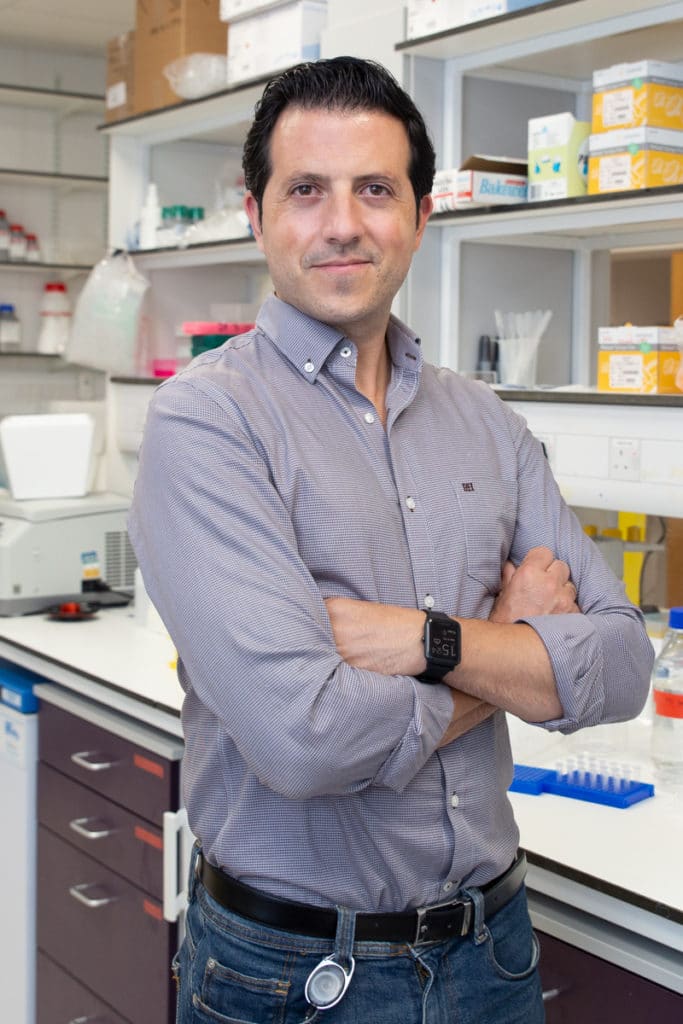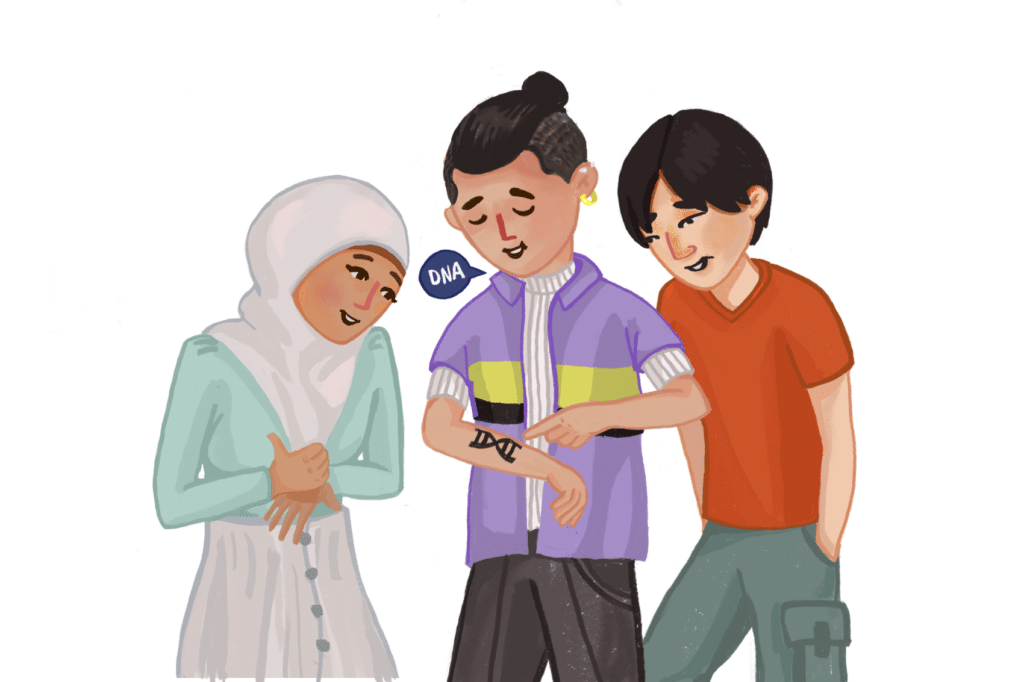
Cell Competition
The Cell Competition temporary tattoo was designed for the Fernandez-Antoran lab group to represent their research as part of the Tattoo my Science project.

Cell Competition
Cells in epithelial tissues have different levels of fitness and constantly compete for space. Mutations in a cell’s DNA may increase its competitive fitness and tissue colonising capacity.
The design shows a herd of sheep, which make up the tissue, and cells that acquire mutations and turn into wolves and colonise the tissue. This process has been linked to diseases such as cancer
We study cell competition mechanisms in healthy tissues, how they change when cells are exposed to environmental factors, and how they can be shaped to prevent the onset of cancer.
Fernandez-Antoran Lab Group
Radiation biology and cell competition
Healthy adult epithelial tissues progressively accumulate clones of cells carrying mutations implicated in cancer and their expansion follows Darwinian evolution rules. Some mutations can increase cell fitness and promote the growth of clones at the expenses of the non-mutated normal adjacent cells, in a process of clonal competition.
Ionising radiation has long been studied as one of the most common environmental mutagenic agents that promotes tumour formation by damaging DNA and creating new oncogenic mutations. However, little is known about its effects on cell competition, clonal evolution and tissue dynamics.


Share your tattoo!
Remember if you post a photo of your tattoo on Instagram, tag us @gurdoninstitute



